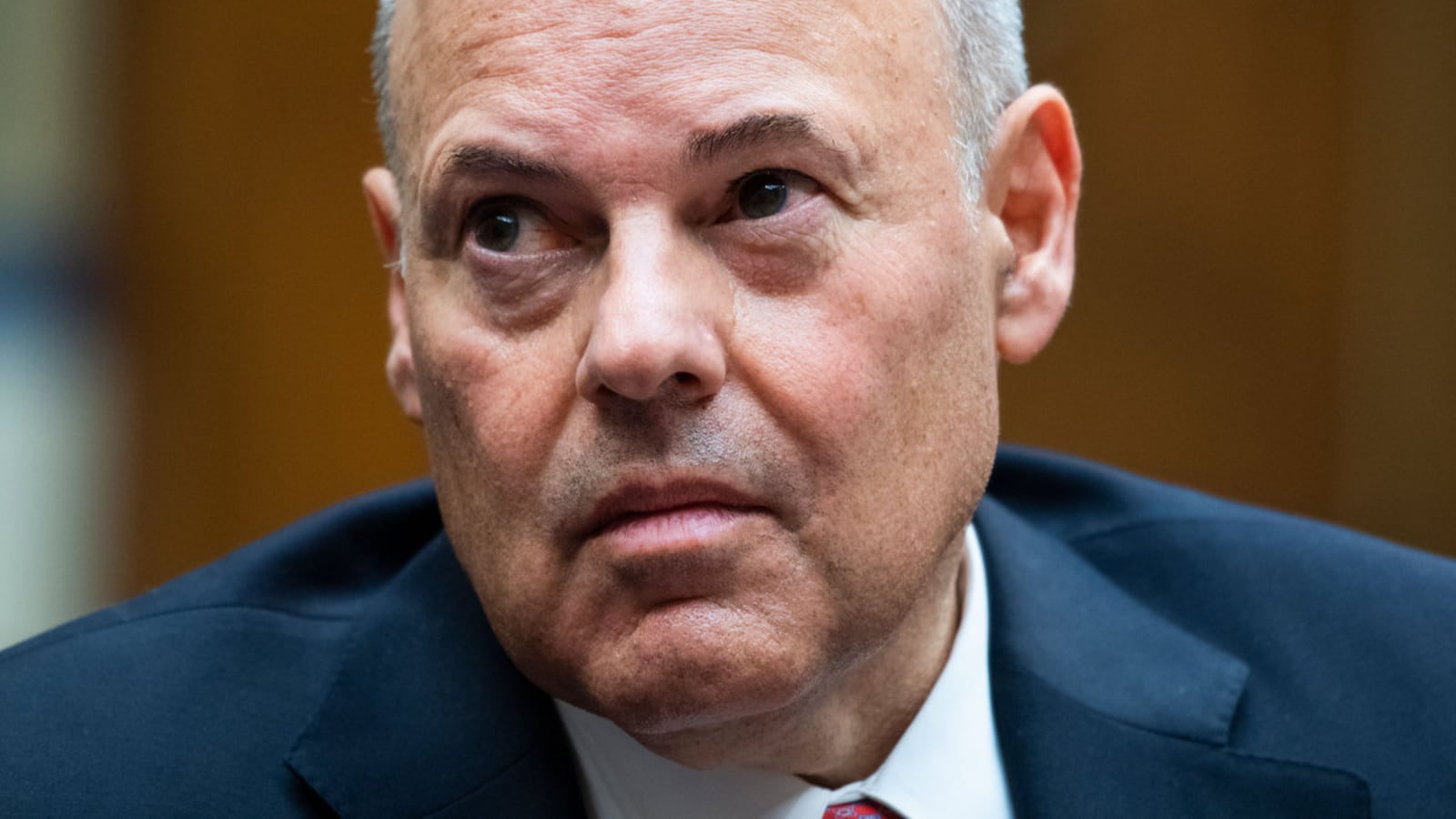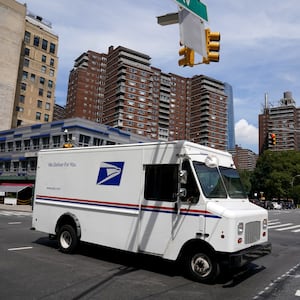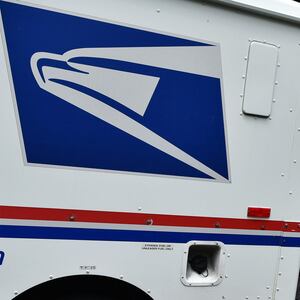A federal judge on Wednesday blasted U.S. Postmaster General Louis DeJoy over the Postal Service’s failure to comply with his order for a ballot search at over a dozen facilities, demanding senior officials at the agency testify before the court.
At the hearing, U.S. District Judge Emmet Sullivan in the District of Columbia called out the USPS for refusing to comply with his court order to perform last-minute sweeps in light of 300,000 untraceable ballots reported by the agency. Sullivan stated DeJoy should have to testify under oath over the agency’s failure to comply, though later agreed to hear testimony from Kevin Bray, who leads mail processing for USPS, on Wednesday afternoon.
“I’m not pleased about this 11th-hour development last night and someone may have a price to pay,” Sullivan said, before specifically stating the agency’s issues start “at the top of the food chain.”
Later, Sullivan said that DeJoy “is either going to have to be deposed or appear before me and testify under oath about why some measures were not taken. I’m not going to forget it.”
The Postal Service disclosed on Wednesday it had completed the sweeps late on Tuesday and turned up just 13 ballots in Pennsylvania. That announcement comes after USPS reported that more than 300,000 ballots scanned into their mail system were never sent out for delivery, sounding alarm bells over hundreds of thousands of ballots that may have potentially missed submission deadlines in several states.
In a statement to Business Insider, USPS insisted that no ballots were unaccounted for. “These ballots were delivered in advance of the election deadlines. We employed extraordinary measures to deliver ballots directly to local boards of elections,” the statement said. “When this occurs, by design, these ballots bypass certain processing operations and do not receive a final scan. Instead, they are expedited directly to the boards of elections.”
Allison Zieve, an attorney representing the NAACP, which brought the lawsuit against the Postal Service with other activist groups, told The Washington Post: “We know yesterday that if the sweeps were doing their job, mail that was identified as ballots and were in the system should have been pulled out and delivered, and it may be that affects what we see as the scores.
“The problem is, in part because of the timing and in part because they haven’t given us all the information we asked for, it’s hard to know whether the numbers we saw today—the low scores for example in Atlanta and Central Pennsylvania—it’s hard to assess how big a problem that is.”
According to VICE News, there are reasonable explanations for the mailing discrepancies that the USPS has repeatedly explained in court documents. The outlet notes that in its daily filings on delivery statistics, USPS maintains that the data “possesses little to no analytical value and should not be considered a reliable indicator of performance.”
In short, the Postal Service intentionally makes its performance seem worse in the short term by removing ballots from the normal sorting and delivery process in an attempt to deliver ballots quicker.
Some postal workers also have been manually postmarking ballots before passing them off for local first-class delivery‚ meaning ballots are never scanned in the first place, VICE reported. Other measures to expedite the process, like sending ballots for sorting before removing them after they’re scanned, also means manually bypassing the final scan number that has been causing alarm.
One Postal Service office insider also told The Daily Beast that in general, on-time delivery expectations for first-class mail—like election ballots—are considered good if they’re at 93 percent on time, which has not happened since the pandemic started in March. However, if mail service dips below 88 percent, officials begin to worry and postal inspectors start an investigation.
Lawyers for the postal service on Tuesday stated the agency declined to perform the sweep because it would have “significantly” disrupted “pre-existing activities on the day of the Election.” Instead, USPS said it would continue the pre-planned review process of its 220 facilities across the country that process mail-in votes—and would try to deliver any remaining ballots.
“The court has been very clear that it expects total compliance,” Sullivan insisted on Wednesday. “I was just as shocked to hear that nothing else was done after the injunction was issued.”
But USPS spokesman David Partenheimer said in a Wednesday email to Bloomberg News that “last night’s sweeps were completed as required.”
In a court filing on Wednesday, Daniel Brubaker of the Postal Inspection Service said that his agency conducted sweeps of the 12 postal districts Sullivan ordered them to check for missing ballots. Brubaker stressed that out of all those facilities, they found only three ballots in Johnston, Pennsylvania, and 10 in Lancaster, Pennsylvania. All of those ballots were “expedited by management for delivery” and will be counted in accordance with the state’s voting laws.
Among Postal Service insiders, there is frustration with DeJoy’s leadership and performance, even after three different courts intervened to compel the USPS to ensure election-mail prioritization.
An Oct. 20 memo from Postal Service leadership promised “extraordinary measures” to ensure the integrity of the vote. Among them were establishing a command center to alleviate postal-operations confusion, and a requirement to add an extra stamped date onto ballot envelopes in order to ensure boards of election would have no doubt about the validity of a mailed ballot. Postal customers, however, had to specifically request that extra step.
A postal-union official who requested anonymity said the allegedly extraordinary measures were “too little too late to fix the damage” from DeJoy decisions like removing certain mail-sorting machines or a quixotic push to force trucks out of depots at set times regardless of whether the trucks had mail on them. “It makes no difference 13 days before the election,” the official said, except to increase confusion among both customers and postal employees who were already overwhelmed from the coronavirus pandemic.
“I don’t think they fucked the election,” the official added, “but they didn’t help the election.”










